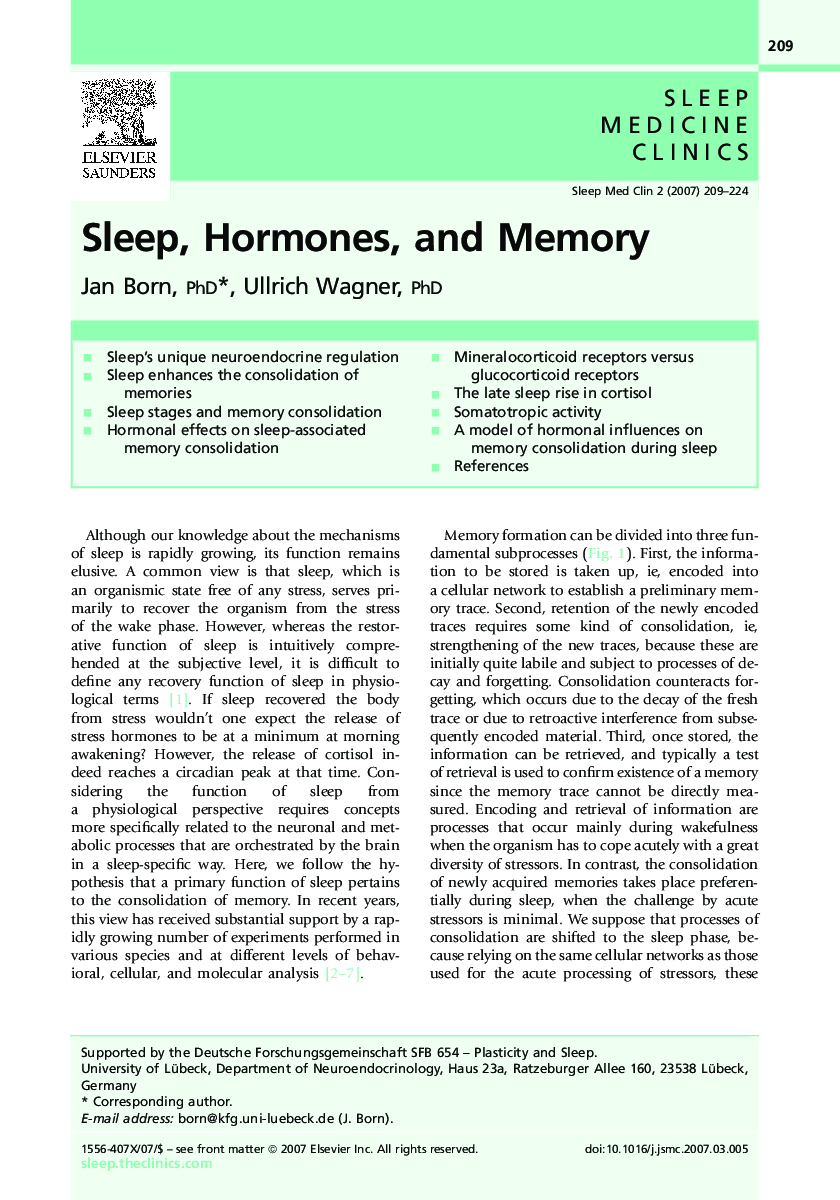| Article ID | Journal | Published Year | Pages | File Type |
|---|---|---|---|---|
| 3838100 | Sleep Medicine Clinics | 2007 | 16 Pages |
Abstract
Nocturnal sleep is characterized by a unique pattern of endocrine activity, which comprises reciprocal influences on the hypothalamo-pituitary-adrenal (HPA) and the somatotropic systems. During early sleep, when SWS prevails, HPA secretory activity is suppressed while growth hormone (GH) release reaches a maximum; this pattern is reversed during late sleep when REM sleep predominates. SWS benefits the consolidation of hippocampus-dependent declarative memories, whereas REM sleep improves amygdala-dependent emotional memories and procedural skill memories involving striato-cortical circuitry. Manipulation of plasma cortisol and GH concentration during sleep revealed an important role of HPA activity for memory consolidation. Pituitary-adrenal inhibition during SWS sleep represents a prerequisite for efficient consolidation of declarative memory; increased cortisol during late REM sleep appears to protect from an overshooting consolidation of emotional memories.
Related Topics
Health Sciences
Medicine and Dentistry
Medicine and Dentistry (General)
Authors
Jan PhD, Ullrich PhD,
